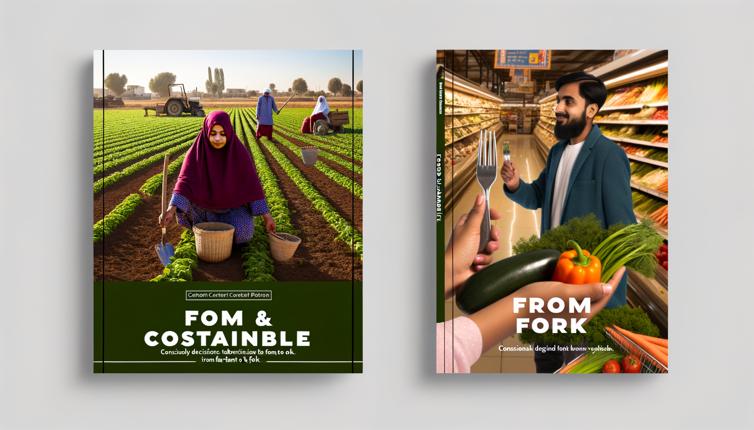1. Sustainable Farming Practices
One of the most important choices that impact the sustainability of our food systems is the farming practices used by agricultural producers. Sustainable farming practices aim to minimize the negative impact of agriculture on the environment. This includes practices such as organic farming, crop rotation, and integrated pest management.,Organic farming eliminates the use of synthetic pesticides and fertilizers, which can contaminate the soil and water. Instead, organic farmers rely on natural methods to control pests and enrich the soil. This promotes biodiversity and helps maintain the health of our ecosystems.,Crop rotation is another sustainable farming practice that involves planting different crops in a specific order to avoid depleting the soil of nutrients. This helps maintain soil fertility and reduces the need for synthetic fertilizers.,Integrated pest management (IPM) involves monitoring and managing pests in a way that minimizes harm to the environment. This can include using natural predators, traps, and cultural practices to control pests, rather than relying solely on chemical pesticides.,By supporting farmers who use sustainable farming practices, consumers can help reduce the negative impacts of agriculture on the environment and support the long-term viability of our food systems.
2. Choosing Locally and Seasonally Grown Foods
Another choice that can impact the sustainability of our food systems is the decision to choose locally and seasonally grown foods. When we choose foods that are grown locally, we reduce the energy and resources required to transport food long distances. This helps reduce greenhouse gas emissions and supports local farmers and economies.,Seasonal eating involves consuming foods that are naturally available during a specific time of year. By eating seasonally, we reduce the need for energy-intensive methods of food preservation, such as refrigeration and freezing. It also ensures that we are eating foods at the peak of their freshness and nutritional value.,Choosing locally and seasonally grown foods not only benefits the environment but also supports local agriculture and encourages greater food security in our communities.
3. Reducing Food Waste
Food waste is a major issue that contributes to the unsustainability of our food systems. When we waste food, we waste not only the resources used to grow, produce, and transport that food but also the energy and water used throughout the entire food supply chain. It also contributes to greenhouse gas emissions when food waste ends up in landfills and produces methane gas.,By taking steps to reduce food waste, such as meal planning, proper storage, and composting, we can help minimize the environmental impact of our food choices. This includes only buying what we need, using leftovers creatively, and supporting initiatives that redistribute food to those in need.,Reducing food waste is not only beneficial for the environment but also for our wallets and the overall sustainability of our food systems.
Conclusion
The choices we make about our food, from the way it is produced to the way it is consumed, have a significant impact on the sustainability of our food systems. By supporting sustainable farming practices, choosing locally and seasonally grown foods, and reducing food waste, we can all contribute to a more sustainable and resilient food system. It is important for consumers to be informed and empowered to make choices that support the health of our planet and future generations.









